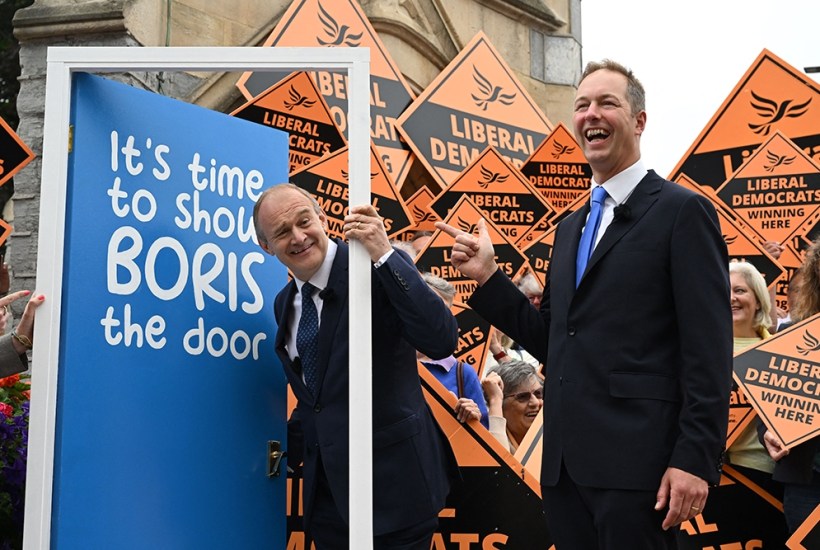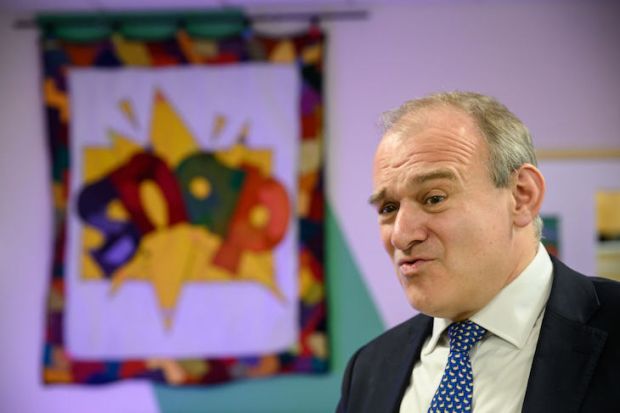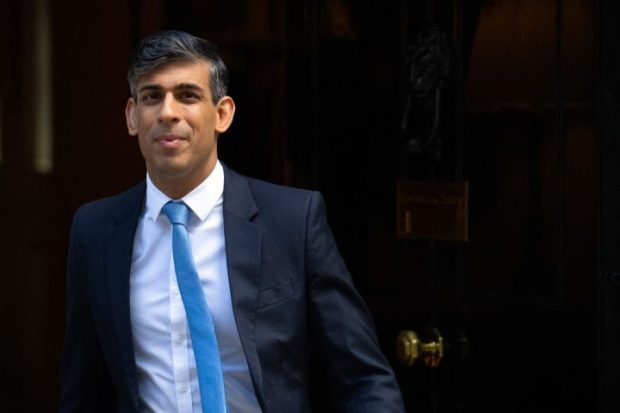Suddenly, out of the blue, comes a saviour. The Lib Dems have failed to capitalise on the downfall of Liz Truss. As the Tories’ polling hits record lows, all of the gains are going to Labour. This weekend, Ed Davey and his colleagues will be praying for the return of Boris Johnson.
Boris was gold dust for the Lib Dems. In Ed Davey’s coveted Blue Wall seats across southern England, Boris was their greatest asset near the end of his premiership. These seats are traditionally Tory but lean Remain and socially liberal. They are also filled with the type of voters who would respond most warmly to Rishi Sunak’s ‘sensible’ calm-the-markets style of leadership. The return of the ramshackle approach of Johnson, sure to be even worse a second time round, will be anathema to these voters.
This is the trade-off Tories should consider carefully when deciding whether or not Boris Johnson is truly a ‘winner’. Johnson is not popular anywhere in particular – something his supporters seem oddly blind to – but he is particularly disliked in these southern English seats the Lib Dems are betting the farm on winning. The counterargument is that Boris would help them the Tories keep more of the Red Wall than any other contender. The thinking is understandable, but it’s the biggest of gambles.
But betting on Boris is not a sustainable strategy for the Lib Dems. Having positioned themselves as a ‘none of the above’ party under Ed Davey, they have suddenly been left in no man’s land during an era of tough choices. A lot of people want the Tories removed from office at the moment and they know the best, most direct way of doing that is to vote for Labour. Everything has become focused on bread-and-butter issues, which is tricky when your appeal is about not being particular on anything at all. When the stakes are this high, a lot of voters might feel like the Lib Dems are a wasted vote.
The second problem for the Lib Dems is that from 1997 to 2015, events convinced them that there was a space in British politics that they were filling, one that would inevitably get bigger. In fact, the specific politics of that period almost certainly inflated their seat numbers. In 1997, they capitalised on the sharp fall in Tory voters to take seats where they had long been runners up. Iraq in 2003 greatly helped them for the rest of that decade. In fact, 2010 should have rightly been the election where they got wiped out, had the brief bout of Cleggmania not come along and at least partially saved the day.
The late 1990s to 2008 was a period of stability and relative political calm. People felt they could afford to vote for a party that was probably not going to form a government any time soon. Voters are far less inclined to do that sort of thing when their mortgages are on the line.
The flip side to this is the Lib Dems are well-equipped to campaign on local issues and gain from anti-Tory tactical voting at a time when there could well be a lot of that about. How much this will work in a general election as opposed to by-elections remains to be seen – history suggests it probably won’t for the Lib Dems, particularly during an election which will be so binary. Having said that, if the Tories really do get less than 20 per cent of the vote, it’s difficult to see how the Liberal Democrats won’t do reasonably well.
There’s nothing much Ed Davey can do himself to stop the Lib Dem decline. The party prospered in a particular period that has now come to an end. Only the return of the man so hated in Wycombe and Guildford might give them an encore.
Got something to add? Join the discussion and comment below.
Get 10 issues for just $10
Subscribe to The Spectator Australia today for the next 10 magazine issues, plus full online access, for just $10.



















Comments
Don't miss out
Join the conversation with other Spectator Australia readers. Subscribe to leave a comment.
SUBSCRIBEAlready a subscriber? Log in